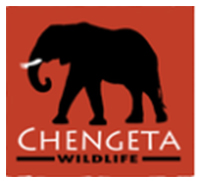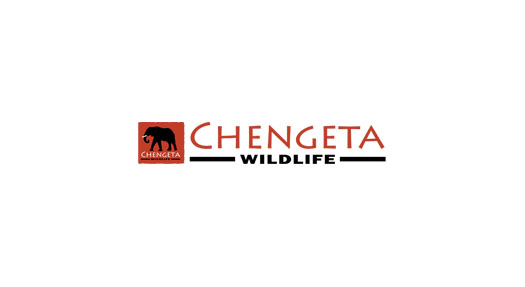By Rory Young.
My name is Boetie Van Niekerk, I am a South African professional hunter looking to buy ivory or rhino horn. I am arrogant, suspicious, and patronizing. I am also greedy and am looking for serious, long-term suppliers and “if you look after me, give me a good price and no hassles, I will keep coming back for more”. I can, of course, “buy as much as you can supply and want as much as you can sell me as quickly as possible”.
I use “middle men” or “buyers” to deal with “sellers”. You can’t just approach me directly. First, you talk to one of my junior middlemen who will meet and talk with you at length to establish who you are, what you have to offer and how much you want for it. He is an old toothless wonder with bad body odour but fancy clothes and a new watch and a smartphone. You are impressed by his stories of how “big” his boss is and how he pays too much money but can’t get enough. If he verifies that you are a genuine and serious seller he will then pass you on to one of my more senior, trusted, sidekicks. He will insist on inspecting what you have. That will be a big negotiation in itself because no one trusts anyone. However, after lots of backwards and forwards, and maybe some arguing, it will be done.
It will be necessary to verify who we are too and once we get round to talking about meeting with me to do the sale, we will have a brief chat on the phone, mainly to reassure you that there is a real “bigshot” foreign buyer behind the junior guys and you are not just being set up to be robbed of your ivory.
Eventually, when you are happy and I am happy, we will arrange to meet at a location we both feel is safe. Invariably a place as isolated and quiet as possible, with several approaches by road; a crossroads in a rural farming area is good, with enough cover to avoid being seen with the contraband, but with a view of the surrounding area. The meeting will of course take place late at night so that any vehicles can be heard or seen approaching from a distance and so that we won’t be observed “doing business”.
When we finally meet, both parties will almost certainly arrive late, having had people check the location secretly, to ensure that it is not a set-up by rangers or police officers or an ambush by thieves.
When we meet, I, of course, let my men do the initial talking. They will speak in the indigenous language of the area, and, as I don’t understand a word of what is being said, my buyers will repeatedly refer to me as this “white prick” or “this shithead”, so as to make you feel that they are on your side really and want to get you a good deal asap, because they hate my guts. All very reassuring for you. You actually outnumber us too, but not enough to encourage you to try to rob us. You are not sure if we are armed or not.
Eventually, I will get impatient with all the blabbering and will rudely interrupt. I want the stuff and I want to go. It is early morning and I am tired. Let’s get down to business…
I snatch at it greedily when you produce it, inspecting it, clearly knowing my business; and you hungrily eye the bulging bag at my feet. After weighing it and examining it we talk price. I argue that I already have lots of ivory as I have been buying in other areas, but eventually we agree on what I believe is a good price, as my middlemen have told you I will, but which you all know is outrageously high.
Money changes hands, the ivory is handed over, I mention one word, and suddenly your world takes a dramatic and terrible turn for the worse. You are suddenly on the ground with a boot on your neck and the muzzle of a gun in your face. Your hands are pinned. There is shouting, bright lights and other people have appeared from nowhere. You catch a glimpse of your friends trying to run, but being slammed to the ground by three men.
I am in reality neither South African nor a criminal, and, although I really am Caucasian, I do actually speak one indigenous Bantu language and can understand a lot of what is being spoken in others. I was born in Zambia, raised mostly in Zimbabwe, and have spent most of my adult life in wildlife and rural tribal areas in Central and Southern Africa.
I am an anti-poaching and anti-trafficking trainer and advisor. My work is done “in-ops”, so I show the rangers how it is done by actually doing it with them on the job. Once I am happy that they have understood the theory in the classroom and have shown themselves proficient in practical exercises, we go out and find and arrest traffickers and poachers, taking down whole networks, if possible.
Going undercover amongst traffickers is extremely dangerous. It is frightening and requires a steady nerve. The ability to believe that you truly are a criminal, and to play the part with convinction, is key. Undercover ops also require excellent teamwork, quick and effective planning, and, above all, incredible trust and confidence between the people working undercover and their support team.
It is never the size of the threat nor its intensity that I find worrying or reassuring. It is the level of control that I and my fellow rangers or trainees have in any given situation.
We are not adrenaline junkies looking for the next big fix. In fact, all of the instructors whom I work with and all of the experienced and properly trained rangers who participate, abhor any unnecessary risk-taking or recklessness. An experienced officer knows that to be effective, to stay alive and healthy and avoid disruption to the community and environment, he needs to get the job done in as professional a manner as possible.
Whilst operating openly in the parks is dangerous work, undercover work on the other hand is, as far as I am concerned, the most nerve-wracking type of work I have done. In the areas I work, there is very little or no technology available to make our work easier. We often end up sitting alone with criminals, out of comms with our fellow rangers. Often this is necessary and deliberate as we need to build trust.
The worst is when a tip comes in at short notice and there is little time to reconnoitre, investigate or plan. Such missions are only undertaken when an experienced team is in place. They can easily go wrong and we occasionally find ourselves pursuing armed individuals in a vehicle or on foot.
Often, communities or syndicates will be closed to outsiders and we have to carefully work out who is who, and how we can break into the circle. That can take a lot of time and requires a lot of patience. We will send in men to try and gather information, identify possible informants and try to understand who is doing what, why, when and how. I do not like sending men into such situations, but often we have little choice. We try to make it as safe as possible by ordering them to withdraw as soon as there is the slightest suspicion or aggression towards them. We will hide teams at strategic points around the areas, both concealed and undercover to move in if necessary.
Although this type of work is stressful and dangerous, it is also exciting and, most importantly, it is highly effective. Along with running informants and interviewing suspects it is one of the best sources of intelligence and regularly results in successful operations.
Whilst I personally dislike ad hoc undercover ops in urban areas, I absolutely love pseudo operations in rural areas. This is when officers form fake poaching gangs and pretend to operate in an area, moving out of a park with (actually seized) contraband, weapons, and they dress and behave like any real poaching group. In some parks areas where the vegetation is very open, this is sometimes one of the most effective ways of getting close enough to attempt an interdiction.
Oh, and don’t worry that I may be letting the cat out of the bag by telling you all of this… Undercover and pseudo ops cause chaos for the poachers just by everyone knowing they are happening in an area. No one knows who they can or can’t trust and talk to. No one can approach anyone new to sell something. No one can ask for assistance from local people or even from other poachers…
Our work is funded through donations to Chengeta Wildlife. The work I describe above has taken place during in-ops training funded by Chengeta Wildlife We are having unparalleled success on the ground, working with different African governments and regional organizations. Rangers have to be able to do everything from undercover work to tactical tracking to crime scene investigation and much more. We train them in a comprehensive methodology that we developed. We help those officers who need the help the most, not just the “celebrity” conservation areas. If you would like to support our work, please donate or share our information.

